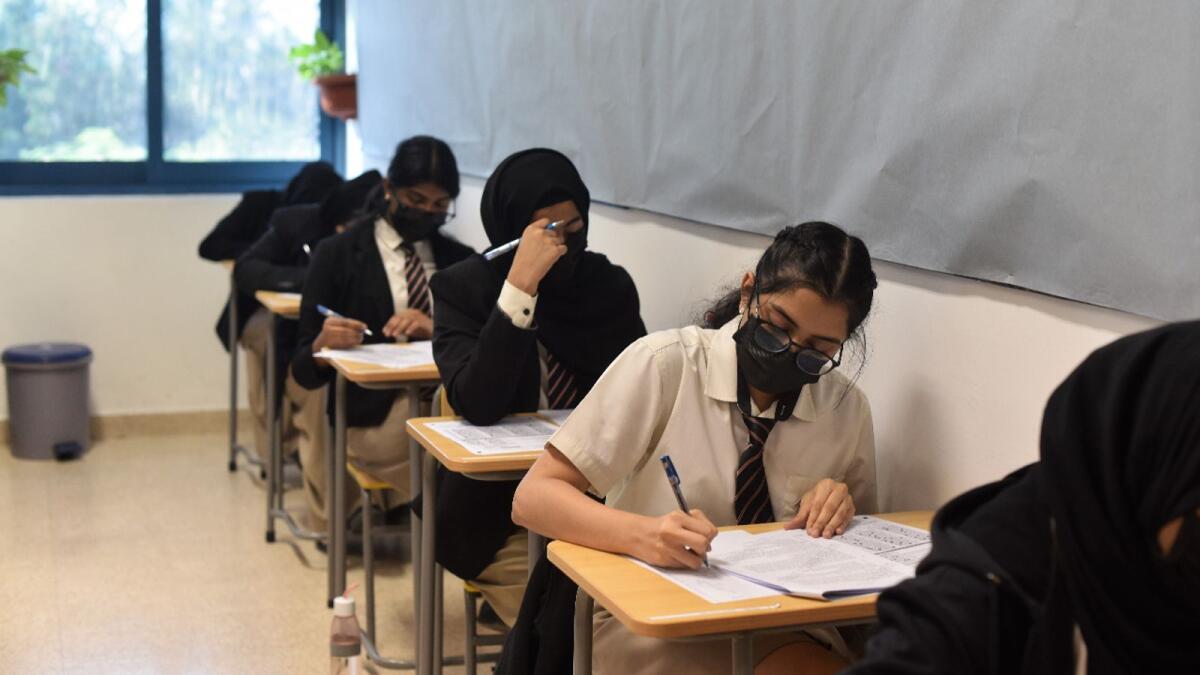Medics and wellness experts are urging students to prioritise their health ahead of the upcoming I/GCSE and A Level exams that are scheduled to begin in May.
They stressed by managing stress, maintaining physical health, enhancing mental well-being, and improving performance, students can approach exams with confidence and resilience.
This advice comes as students in the UAE gear up for their I/GCSE and A Level exams that will be held between May 9 and June 25, 2024.
Stay up to date with the latest news. Follow KT on WhatsApp Channels.
Medics emphasised taking care of their health involves maintaining a healthy diet and ensuring adequate sleep to support optimal brain function.
Symptoms of stress
Dr Raga Sandhya Gandi, Specialist Psychiatry, Zulekha Hospital Dubai said, “Stress, when coped with adequately, helps in focusing and preparing to achieve goals. When not addressed adequately, it can become ‘distress’, affecting an individual in many ways.”
She added that common problems she has come across, include, “Interpersonal issues — commonly encountered between students and parents, frequent arguments and behavioural changes. Other indicators of stress are sleep disturbances, severe levels of anxiety, episodes of panic attacks, as well as memory and concentration complaints of forgetfulness even after studying and not being able to have sustained concentration.”
Dr Raga Sandhya Gandi
Experts advise that students must keep things simple and not try to do anything new or out of routine just before the exams.
“Having practical, clear, achievable goals, focusing on the present, in terms of what is in their control and what can be done in the time available, not anticipating consequences of either performance or results,” Gandi added.
Regularly play and exercise
Dr Naresh Kumar Dhar, Consultant Psychiatry in Prime Hospital, Jumeirah said, “Plan in advance and regularly play and exercise. Sleeping well is important and so is eating healthy. Stay positive and if required, take support from friends, parents, and teachers and to help pupils remain organised.”
Dr Raga Sandhya Gandi
Wellness experts in the country reiterated that staying hydrated, engaging in regular exercise, and effectively managing stress play important roles in fostering cognitive wellness, especially ahead of any major exams.
Other factors aiding cognitive function
Girish Hemnani, Life Coach and Energy Healer based in Dubai, said, “It’s vital to know one’s ‘Gut-Brain’ connection and create a balanced and diverse diet that supports a healthy gut microbiome that can positively influence cognitive function.”
Foods abundant in probiotics and pre-biotics like yogurt and fiber-rich vegetables, support gut health, potentially enhancing brain function.
Girish Hemnani
“Likewise, adequate sleep is crucial for memory consolidation, learning, and cognitive performance. It’s important to note that high-quality sleep enables the brain to undergo processes that reinforce neural connections, aiding in the retention of new information and improving problem-solving skills,” he added.
Hemnani also explained often procrastination sneaks in silently and builds in pressure to accomplish a lot in a time-pressed manner.
He stressed by addressing quick tasks promptly, one eliminates delay and creates a momentum.
“One effective hack to avoid procrastination is the ‘Two-Minute Rule’. The concept is simple – if a task takes less than two minutes to complete, do it immediately rather than putting it off. This hack is based on the idea that many small tasks, when accumulated, contribute to hindrance in larger accomplishments,” he said.
Read the full article here









